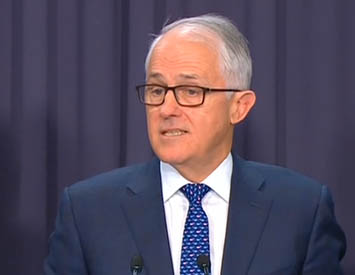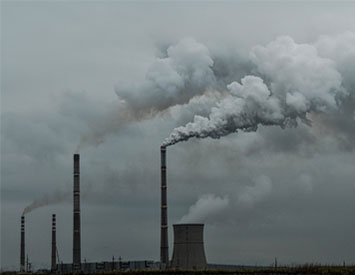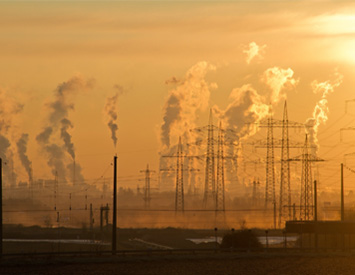Turnbull is making all the right noises on the world stage but not acting on climate change promises at home, says Giles Parkinson.
AUSTRALIA will be locked into significantly more ambitious climate policies by the end of the year, as one of the key conditions of the far-reaching Paris climate deal was met overnight and the remaining condition appears merely a formality.
The Paris climate deal, which aims to cap average global warming at “well below” 2°C and as low as 1.5°C, will come into force within 30 days of it being ratified by at least 55 countries, representing at least 55 per cent of total emissions.
On Wednesday, the first threshold was reached when another 31 countries, including major emitters Mexico and Brazil and many of Australia’s vulnerable Pacific island neighbours, signed the deal. That took the running total to 60 and 48 per cent of emissions, including the two biggest emitters China and the United States.
Another 14 countries, including the UK, France, Germany and Australia, then promised to ratify the deal by the end of the year. This will ensure that the second condition will also be reached and that the pact will be in place before end of 2016, just a year after the agreement was reached in Paris and then signed in April.
This is virtually unprecedented in international agreements.
UN Secretary General Ban Ki-moon said:
'This momentum is remarkable. It can sometimes take years or even decades for a treaty to enter into force. It is just nine months since the Paris climate conference. This is testament to the urgency of the crisis we all face.'
Ban said that the early entry into force of the Paris Agreement would trigger the operational provisions of the agreement and accelerate efforts to limit the global temperature rise to well below 2°C and to build climate resilience.
This is where it impacts Australia.
In a speech he made in New York (Friday morning Australia time), Turnbull said all the right things.
“We all understand what is at stake – the future of generations around the globe and the wellbeing of our planet.”
And then:
“We also know that our commitment to action creates new opportunities for innovation and growth, which means more jobs. Over the past decade or so Australia has reduced emissions and grown the economy by nearly 50 per cent.”
Turnbull says that the significant and complex threat of climate change
“... demands every one of us to act together towards a better world. We all understand what is at stake — the future of generations around the globe and the wellbeing of our planet."
Australia will play its part, he says, describing the Paris conference of last year as
“... a shining example of global co-operation for the common good."
But it is one thing to make pleasing remarks on the international stage and quite another to implement those promises and engagements at home. He has been prime minister for more than 12 months but has yet to move beyond the policies of his climate sceptic predecessor, Tony Abbott.
Even the one initiative he has made, the $1 billion Clean Energy Innovation Fund, is to be stripped of nearly all its funds because of a compromise the Government agreed to make on Australian Renewable Energy Agency (ARENA) funding.
But the task for the Turnbull Government is monumental. As RepuTex pointed out in a report on Wednesday, its current policies will likely leave Australia one billion tonnes of greenhouse gas abatement short of its own modest target of a 26-28 per cent cut in emissions by 2030.
The individual targets committed in Paris still fall well short of the 2°C mark and a long way from 1.5°C. According to some estimates, it will leave the world facing a warming scenario of 3°C or more. Australia, according to its own Climate Change Authority (CCA), will likely need to find another billion tonnes of abatement to meet the fair share promised by Turnbull.
We may have to wait another year to learn what it might be that Turnbull will do, or feel he can do with a one seat majority in parliament and a large climate science denying conservative rump within his own party.
A review in 2017 could be a launch-pad for tightening baselines, shifting to some sort of trading scheme – as suggested by the CCA and Labor – and expanding and lifting renewable energy targets, or imposing tight emission regulations for vehicles, buildings or coal fired generators.
So far, though, Minister for the Environment and Energy Josh Frydenberg has committed to nothing more than a “sit-rep”, a term so oblique we had to ask what it meant. “A situation report,” we were told. In other words, an assessment of where the country is, not of what it might or should be able to do.
Yet, the case for urgent action is clear, as even Turnbull recognises. The activist group 350.org, which wants warming limited to 1.5°C, says there remains a massive gap between what the agreement calls for and what world governments are actually doing to meet these targets.
Executive director May Boeve said:
'Each of the last 16 consecutive months have been the hottest in history, with 2016 shaping up to be the hottest year on record — a title that we’re getting far too accustomed to applying year after year.'
The Paris accord, which Australia will ratify and be beholden to, commits the world, Australia included, to zero carbon emissions by the middle of the century. Even the latest CCA report indicates that coal generation will have to disappear by around 2035.
The fact remains that Australia, without strong and clear action, will blow its “climate budget” by 2030 on its current course and will miss out on the huge economic opportunities that could have been offered a global renewable energy superpower and technology leader.
And the uncomfortable truth for Turnbull and the conservative rump he is forced to deal with is that climate change is inextricably linked with all the major issues facing the country — security, immigration and trade.
United States President Barack Obama on Wednesday directed his National Security Council and the Office of Science and Technology Policy to systematically include “climate change assessments” in all national security decisions.
The White House said in an accompanying fact sheet:
'Climate change is an urgent and growing threat to our national security, contributing to increased natural disasters, refugee flows, and conflicts over basic resources like food and water.'
"It is well-established that climate change is a threat multiplier that catalyses conflict and creates instability," said Andrew Light, a senior fellow at the World Resources Institute.
"Climate change is a underlying driver of natural disasters and extreme weather events, increases human migration, and contributes to conflicts around resources, such as food and water. Without action, these threats will surely increase."
In Australia, something has to change, and it has to change soon. But how?
This article was originally published in RenewEconomy on 22 September 2016 under the title 'Australia locked in for more ambitious climate, renewable policies' and has been republished with permission. You can follow Giles Parkinson on Twitter @GilesParkinson.
Monthly Donation
Single Donation
Be informed. Subscribe to IA for just $5.









